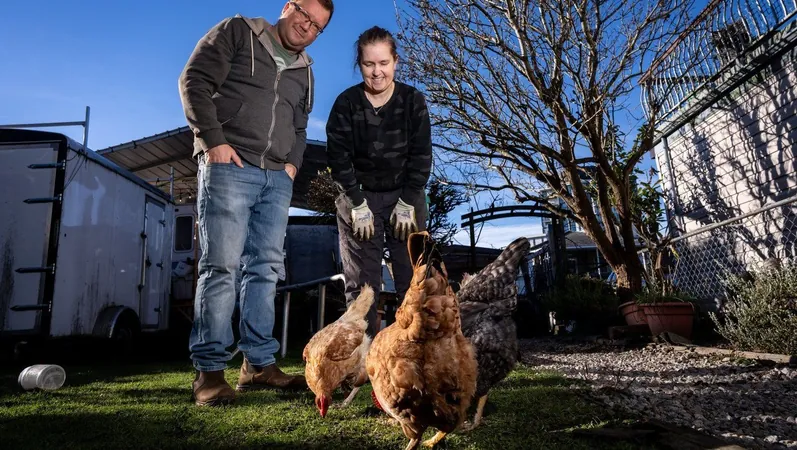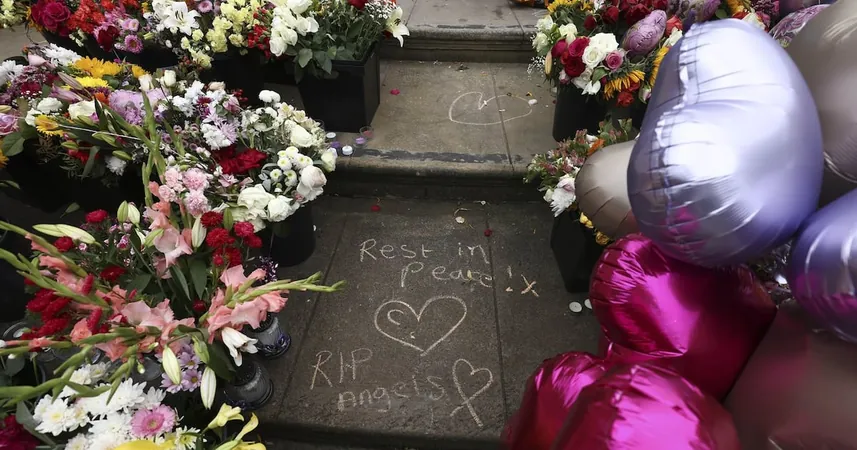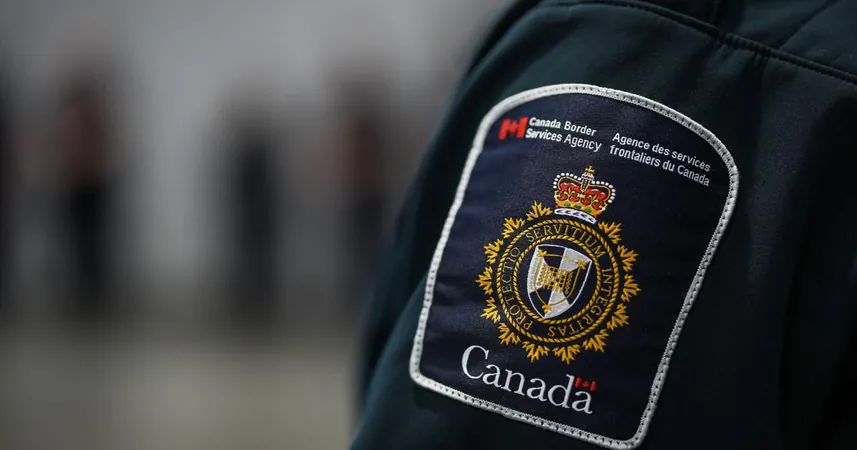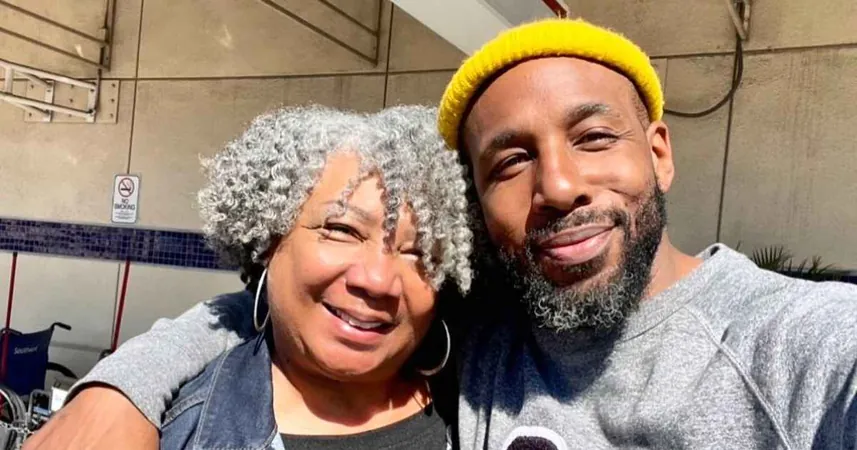
Vancouver's Backyard Chickens Under Lockdown: The Hidden Dangers of H5N1 Avian Influenza
2025-01-16
Author: Olivia
Vancouver's Backyard Chickens Under Lockdown: The Hidden Dangers of H5N1 Avian Influenza
As the threat of H5N1 avian influenza looms over British Columbia, urban poultry enthusiasts in Vancouver are taking drastic measures to protect their beloved backyard chickens. Among them is Duncan Martin, whose seven-year-old hen, affectionately named Lumpy Eye, is currently in isolation, cut off from her usual social interactions with neighborhood friends and wild birds.
With the avian flu causing havoc across commercial flocks in the province—leading to over 8.5 million birds being culled—backyard chicken owners are becoming increasingly vigilant. Martin explains, “We’re just a small operation with one chicken, but we're ensuring she's fully protected in her run.”
The city of Vancouver is home to 184 registered backyard flocks, a figure which has skyrocketed since the allowance of urban chicken-keeping in 2010. However, despite the booming trend, City of Vancouver spokeswoman Pinder Rehal warns that bird flu poses a 'real and present risk' to these small flocks, although no infections have been recorded within the city so far.
The situation is grave. The first reported human death from bird flu in the U.S. occurred recently, involving an individual from Louisiana who had contact with infected birds. In Canada, the first domestically acquired case involved a teenage girl in British Columbia who fell critically ill with H5N1 last November, only recently being discharged from the hospital.
BC's Chief Veterinarian, Dr. Theresa Burns, emphasizes the need for proactive measures among chicken owners. “The safest thing is to keep chickens indoors to minimize their exposure to any virus carried by wild birds,” she stated. It’s critical to maintain cleanliness in their environments and to change clothes after visiting places where wild or domestic birds are present.
Avian flu is especially prevalent along the Pacific flyway migration path, and duck and goose populations are particularly susceptible. However, the contamination risks also extend to small songbirds that can inadvertently introduce the virus into urban backyards.
In an effort to stave off potential infection, Martin and other chicken owners, like East Vancouver residents Joshua and Holly Hergesheimer, have adopted extra precautions. The Hergesheimers, who keep a flock of four hens, are diligent about monitoring their chickens’ health and staying informed about regulations. “We try to keep our girls safe from any wild birds we see around,” Joshua said.
Experts have noted a reduction in sick and dead wild birds compared to last year, suggesting that some may be developing population-level immunity to H5N1. However, the possibility of the virus mutating remains a significant cause for concern. Should mutations increase its transmissibility to mammals, experts warn of a potential pandemic risk.
The bottom line is clear: vigilance is key. For backyard poultry enthusiasts like Duncan Martin, keeping Lumpy Eye safe is paramount. 'She's a survivor,' he remarked. 'With the right precautions, she can live out her years happily in our backyard.'
The battle against avian influenza is far from over, and as regulations tighten, many are left wondering how long it will be until backyard chickens can once again roam free. Will your beloved pets be next? Stay tuned!









 Brasil (PT)
Brasil (PT)
 Canada (EN)
Canada (EN)
 Chile (ES)
Chile (ES)
 Česko (CS)
Česko (CS)
 대한민국 (KO)
대한민국 (KO)
 España (ES)
España (ES)
 France (FR)
France (FR)
 Hong Kong (EN)
Hong Kong (EN)
 Italia (IT)
Italia (IT)
 日本 (JA)
日本 (JA)
 Magyarország (HU)
Magyarország (HU)
 Norge (NO)
Norge (NO)
 Polska (PL)
Polska (PL)
 Schweiz (DE)
Schweiz (DE)
 Singapore (EN)
Singapore (EN)
 Sverige (SV)
Sverige (SV)
 Suomi (FI)
Suomi (FI)
 Türkiye (TR)
Türkiye (TR)